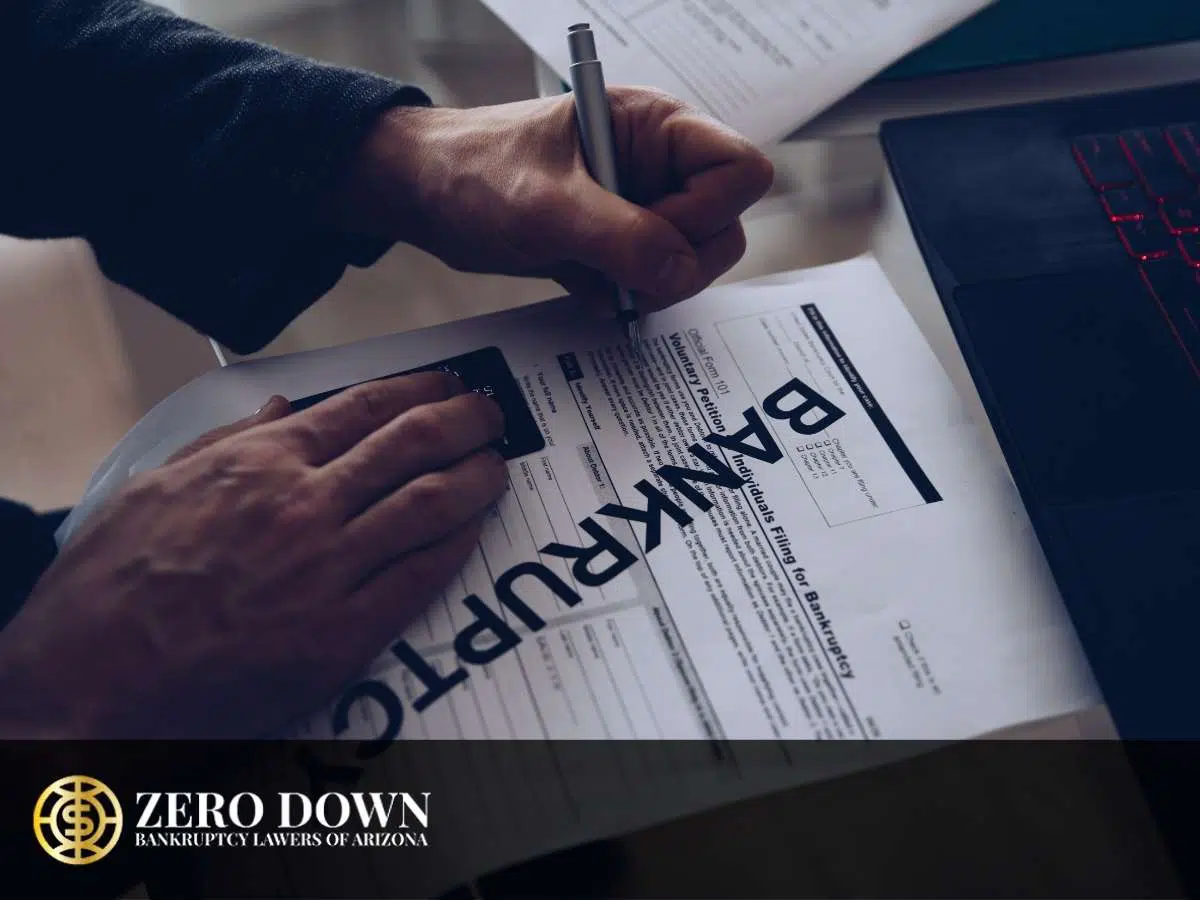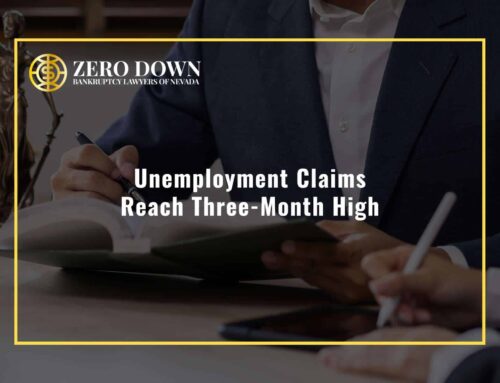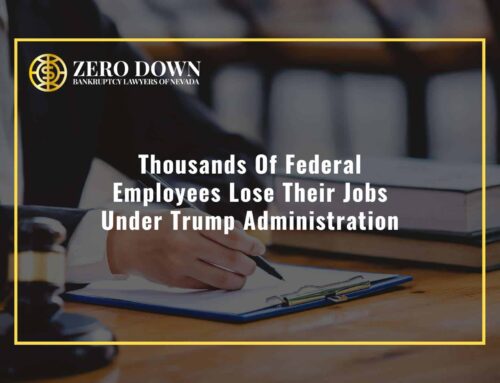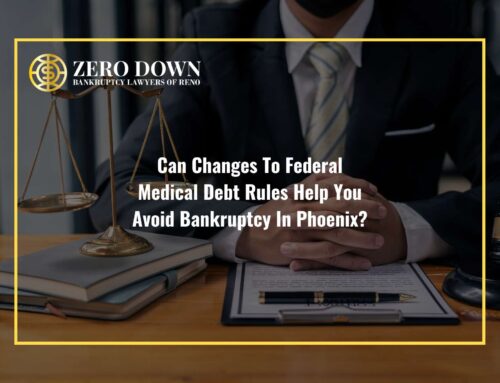Know When Is The Best Time To File For Bankruptcy
Our Phoenix and Tucson Bankruptcy Attorneys discuss when is the most advantageous time to file for Chapter 7 or chapter 13 bankruptcy in Arizona. Zero Down Bankruptcy Lawyers also take a look at if you should file bankruptcy right after filing your taxes. There are pitfalls to avoid and information that you need to know to protect your assets. Read on for more information.
If you’re one of the millions of Americans and Arizonoans who put off filing your taxes until right before the deadline, you probably feel relieved to be done with one of the worst tasks of the year. Additionally, many people owe a negligible amount or can expect a small refund, while many families might owe in the thousands and others will receive sizable refunds. If you’re struggling with debt, you might be thinking now could be time to file bankruptcy now that your taxes are out of the way. However, there are several issues to keep in mind if you want to declare bankruptcy shortly after a tax filing. For answers to your more specific questions, call 602-609-7000 to schedule your free case evaluation with one of our experienced Chandler bankruptcy lawyers.
Tax Debts & Filing Bankruptcy in Arizona
After doing your taxes, you may have found out you owe more in taxes than you can afford to pay. This problem can be even worse if you already have a balance with the IRS from previous years. What can be done about your tax debts depends on whether they’re priority debts, and which chapter of bankruptcy you file.
There are a few factors that determine if your tax debts are priority debts. First, the tax debt must be from the tax year at least 3 years prior. Second, the return must have been filed at least 2 years prior. Third, the tax debt must have been assessed at least 240 days before you file bankruptcy. Last, the filer can’t have been guilty of tax fraud, evasion, etc. If your tax debts meet these requirements, they are not priority debts. If they don’t, they are priority debts and are treated more strictly in bankruptcy.
When you file Chapter 7 bankruptcy, most of your unsecured debts will be cleared away. This includes credit cards, medical bills, personal loans, and nonpriority tax debts. This might sound great, but you need to make sure that you qualify and all of your assets are protected first. Chapter 7 bankruptcy has strict income limitations to prevent abuse of the bankruptcy system. In a Chapter 7 bankruptcy, any assets that aren’t protected by exemptions can be taken by the bankruptcy trustee. If your taxes don’t meet the requirements described above, they will remain in place after a Chapter 7 bankruptcy.
Chapter 13 bankruptcy can help you if you don’t qualify for Chapter 7 bankruptcy, or if your tax debts are priority debts. Instead of wiping debts away, it reorganizes them into a payment plan based on four categories. Instead of needing to prove that you don’t exceed an income limit, you will need to prove you have sufficient income to pay off at least the first three categories in your payment plan. That payment plan will last 3 years if your income falls below the state median for your household size, and 5 years if it falls above it. The first debt category paid in a Chapter 13 is legal fees related to your bankruptcy case. Second, secured debts- or debts with an asset attached as collateral- are paid. The third category is priority debt, which includes tax debts that don’t meet the requirements described above. Unsecured nonpriority debts, or those that can be discharged in Chapter 7 bankruptcy, are the fourth and final category paid in a Chapter 13 payment plan.
Tax Refunds and Bankruptcy
Whether you’re a growing family or you are owed a significant refund for any reason, this is cause for consideration before declaring bankruptcy in Arizona. As mentioned above, your assets need to be protected by exemptions when you declare bankruptcy in Arizona. Arizona’s bankruptcy exemptions don’t protect tax refunds. Arizona also doesn’t allow for the use of federal exemptions, or a wildcard exemption that can be used on an asset of the debtor’s choosing.
If you are expecting a tax refund, you can basically assume that the trustee will seize some or all of it once it is disbursed to you. The amount your trustee is entitled to take will depend on the month in which your case was filed. For example, the trustee could take 2/12 (or 1/6) of a return filed in February, or 7/12 of a return filed in July. If you want to avoid the risk of your trustee taking any of your refund altogether, it may be preferable to file your bankruptcy after receiving and spending your tax refund.
Arizona has a relatively low exemption for your bank accounts and cash on hand the day your case is filed. It is only $300 for unmarried individuals, and $600 for married couples. So even if you have already received your tax refund, your trustee can still demand you pay it towards your bankruptcy estate if it was still in your possession at the time your case was filed. If you spend your tax refund on reasonable expenses before filing your bankruptcy, your trustee will have no reason to demand reimbursement to your bankruptcy estate.
Reasonable Expenditures When Filing Bankruptcy in Tucson or Phoenix, AZ
You can be sure that when you file bankruptcy, the trustee will be reviewing your bank account and credit card statements. This is, in part, to make sure you weren’t spending frivolously while preparing to file. If you want to spend your tax refund before you file bankruptcy so that your trustee can’t take it.
Here are some useful expenditures that won’t arouse suspicion from the Arizona bankruptcy trustee:
- Residential costs, like your mortgage or rent
- Tax preparation services
- Food, cleaning supplies, and other household goods
- Vehicle repairs and maintenance
- Bankruptcy attorney’s fees
- Medical and dental expenses
- School supplies and other educational expenses for your children
- Clothing, tailoring, and dry cleaning
- Wi-fi and cell phone bills
- Alimony and child support
- Utilities and insurance costs
- Student loan payments
- Reasonable charitable contributions
Affordable Filing Whether You Need to Spend Your Tax Refund or Need Financing Options
If you’re considering bankruptcy, the last thing you have money for is consultations with bankruptcy attorneys. And while many bankruptcy attorneys advertise payment plan options, you still must pay your balance in full before your case can be filed. This simply isn’t workable for many people who struggle with debt. That’s why our Arizona bankruptcy team came up with creative solutions for anyone considering bankruptcy.
Our Arizona Bankruptcy Attorneys make the bankruptcy process as simple and affordable as possible. This starts with your free consultation, which can be held either in one of our convenient offices, or over the phone. Our Phoenix Bankruptcy Lawyer and staff will determine your bankruptcy qualifications and let you know if any other options are available. If you’d like to retain our services, you’ll receive a competitive quote for bankruptcy representation. You can either pay your balance up front, or if you qualify, take advantage of our ZERO DOWN financing.
When you file Zero Down bankruptcy at Arizona Zero Down Bankruptcy Lawyers, that really means your case will be filed for zero dollars down. Your payment plan can last up to 12 months after your filing date and includes a 0% interest rate. Your payment plan also includes credit reporting, which can help bolster your credit score as you begin to rebuild your credit history. When you’re ready to get started, fill out our online form or call our office at 602-609-7000 to schedule your free consultation.
Arizona Offices
Phoenix Location:
343 W Roosevelt Street, Suite #100
Phoenix, AZ 85003
Email: [email protected]
Phone: 602-609-7000
Mesa Location:
1731 West Baseline Rd., Suite 101
Mesa, AZ 85202
Email: [email protected]
Glendale Location:
20325 N 51st Avenue, Suite #134
Glendale, AZ 85308
Email: [email protected]
Tucson Location:
2 East Congress, Suite #900
Tucson, AZ 85701
Email: [email protected]











